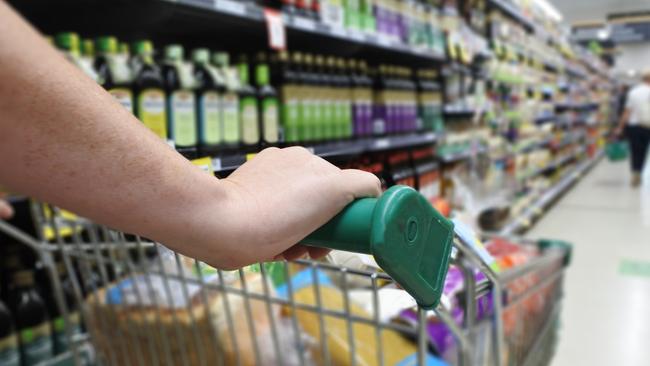‘Human catastrophe’ warning as global food prices rise, Aussies paying $10 more a week
Rising global food prices have prompted the president of the World Bank to warn of an impending “human catastrophe”.
Economy
Don't miss out on the headlines from Economy. Followed categories will be added to My News.
Australians are on average spending $10 more on groceries every week and more than a third are now actively trying to cut costs, according to a consumer survey by Compare the Market.
Meanwhile six per cent of respondents said that they have had to skip meals, as they could not afford to keep eating.
The $10 increase in our average weekly supermarket shop compared with what we were paying in September last year is no small rise for, Compare the Market’s Chris Ford said.
Stream more finance news live & on demand with Flash. 25+ news channels in 1 place. New to Flash? Try 1 month free. Offer ends 31 October, 2022 >

“For many Australians, price hikes are making a massive difference to household budgets and their quality of life,” Mr Ford said.
“High recent petrol prices have had a knock-on effect with higher food prices, as higher transportation costs combined with broader global conditions have made some essential items more expensive.”
The survey also found more than half of Australians had been driving less due to rising petrol prices.
This comes at an uncertain and gloomy time for consumers. World Bank president David Malpass recently warned the world faces a “human catastrophe” from rapidly increasing food prices.
In an interview with the BBC, Mr Malpass said that this will most affect the poor, who will “eat less and have less money for anything else such as schooling”.
In Australia, food prices are increasing slower than the rest of the world thanks to our large agricultural output, our distance from Ukraine and our lack of dependence on food imports.
But around the globe, the United Nations Food and Agriculture Organisation said food prices have increased by 75 per cent since the middle of 2020.
Oxfam, the global non-profit, earlier this month predicted that over a quarter of a billion people around the world will fall into extreme poverty this year in large part due to rising food prices.
“It’s a human catastrophe, meaning nutrition goes down. But then it also becomes a political challenge for governments who can’t do anything about it, they didn’t cause it and they see the prices going up,” Mr Malpass said.
The rise in food prices is largely driven by knock-on effects from the Russian invasion of Ukraine and a global inflationary environment. The biggest contributors to the spike are rising prices of vegetable oils, cereals and dairy. Vegetable oils and cereals in particular are vital Ukrainian exports and a rise in cereal prices is affecting dairy production.
Mr Malpass said that governments should focus on increasing supplies of fertiliser and food, and target assistance to the poorest people.
ANZ predicted that food prices would continue to increase.
“The momentum in food price inflation will carry through into the second quarter, with several companies flagging planned cost rises,” ANZ senior economist Catherine Birch said.
Originally published as ‘Human catastrophe’ warning as global food prices rise, Aussies paying $10 more a week




